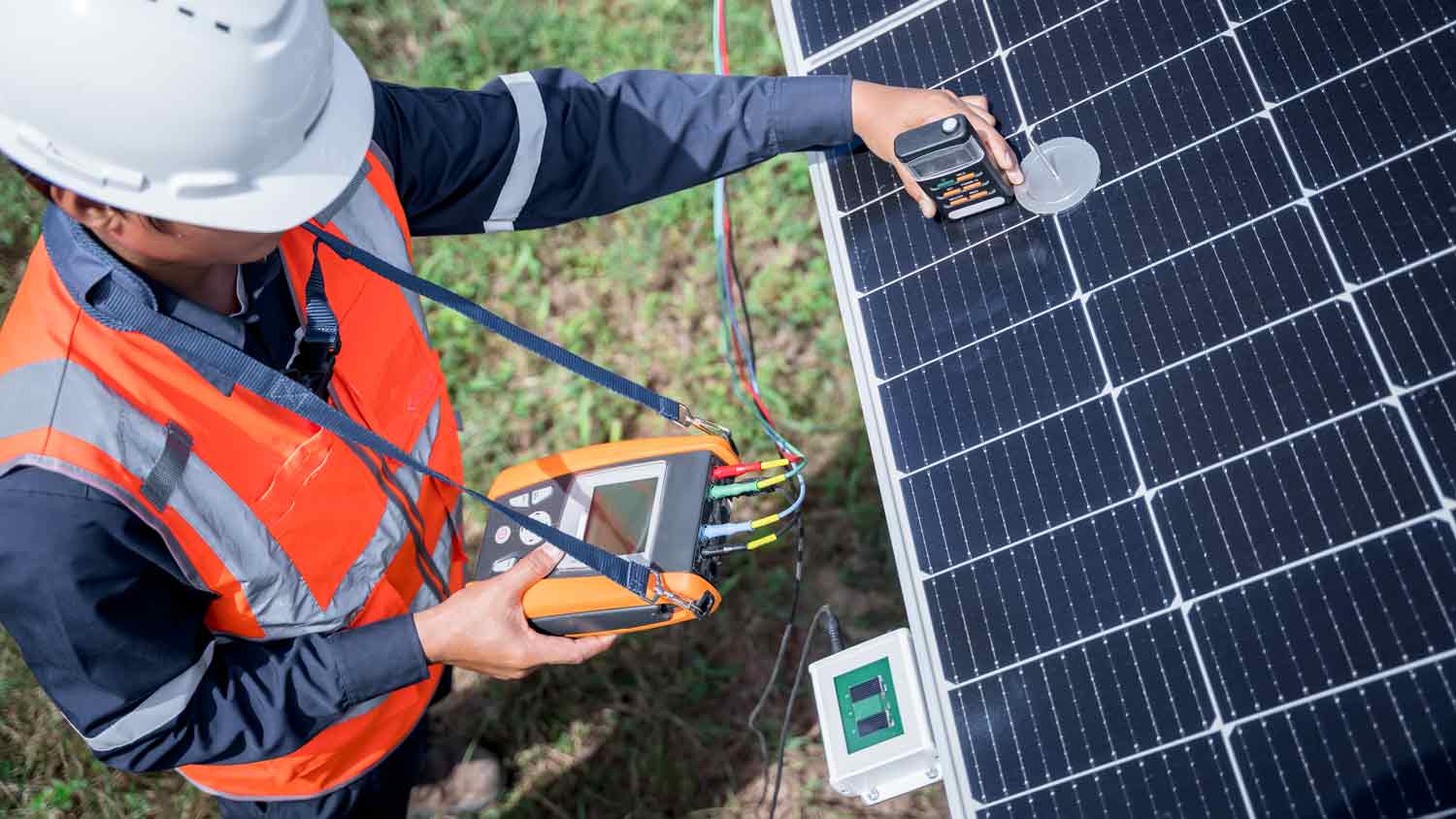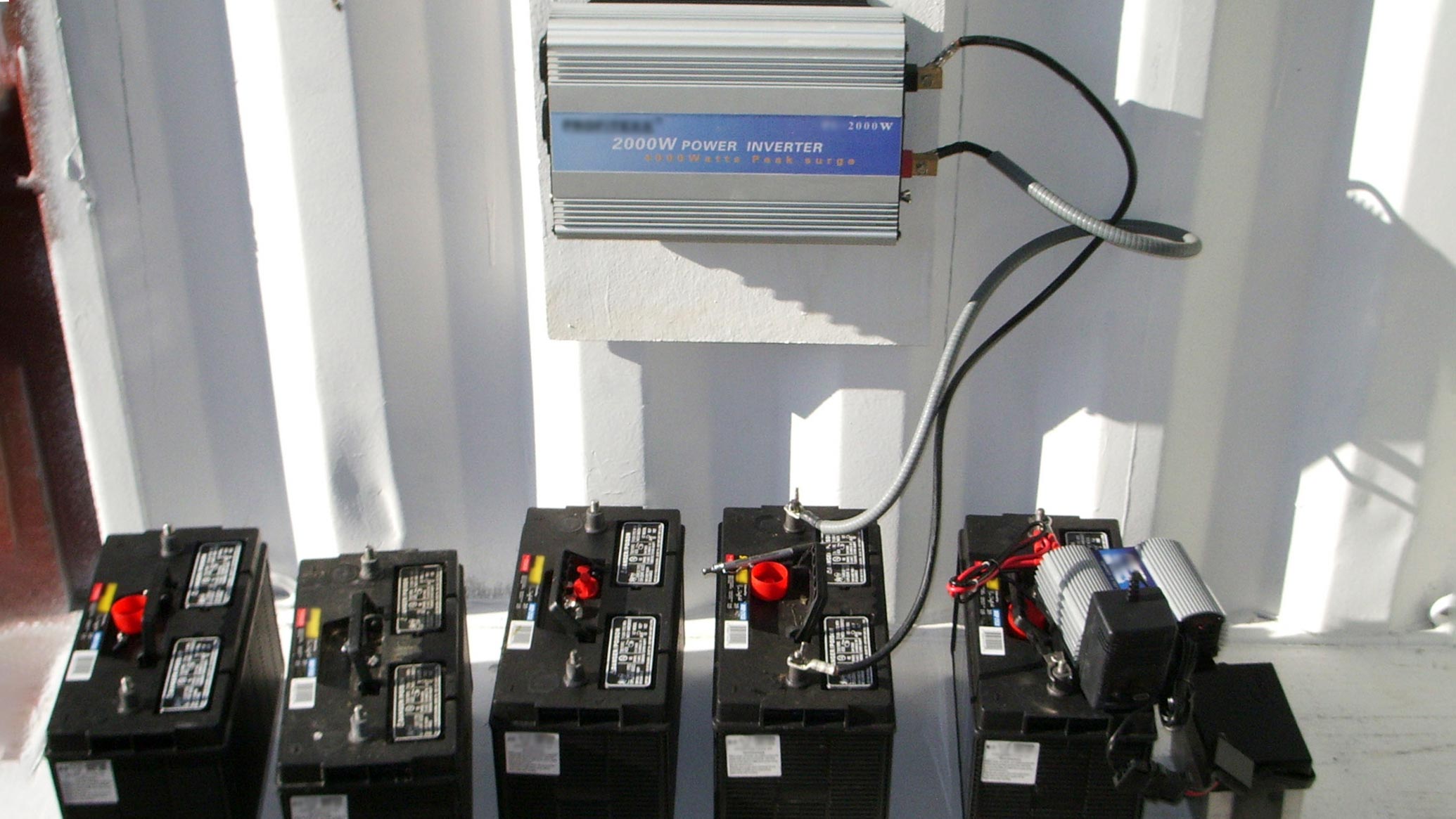
Discover the average solar panel inspection cost, what impacts pricing, and how to save. Get expert tips to keep your solar system efficient and safe.
Find the right number of batteries to keep your home shining after dark


Solar panel battery storage saves money, provides backup power, and allows for energy independence.
Consider how much energy your home uses, storage duration, and battery capacity.
Calculate your solar battery storage needs by multiplying daily energy usage by the number of days of required storage.
Not all batteries have the same usable capacity, so choose wisely.
Daily Average Energy Use (kWh) x Number of Days of Storage Required = Total Battery Storage Needed (kWh).
Storing reliable and renewable energy sounds better than ever as solar batteries and panels become more affordable, homeowners save by selling energy back to the grid, and power outages become more common. However, the question of how many solar batteries are needed to power a house doesn’t have a straightforward answer. You need a system sized to your home and power needs. Here, we’ll help you determine how many batteries you need to keep your solar investment sunny side up.
Homeowners invest in solar batteries for three reasons: energy savings, reliable backup power, and self-sufficiency. Let’s examine each one.
If you want to lower your overall cost of living (at least when it comes to electric bills), solar battery storage can be your best friend. Solar batteries let your solar panel system store energy during daylight hours for use during peak utility pricing, when electricity rates rise. Depending on your local pricing schedule, you’ll need two to three 10 kWh batteries to get the biggest savings.
You still might need to use electricity from the grid during cloudy days or long winter nights, but your wallet will thank you for the solar charge. Note that a stand-alone solar system requires more batteries.
If you want to keep your house powered during grid outages, one good-sized battery can keep essential appliances (think: refrigerator, lights, and Wi-Fi router) running. In most cases, a single 10 kilowatt-hour (kWh) battery will get you through brief power failures. Consider the pros and cons of solar batteries versus generators when choosing the best backup power solution for your home.
Installing the right solar batteries is essential for homeowners with off-grid aspirations. But you’ll need to plan carefully and scale up your battery game if you want a stand-alone solar power system. Self-sufficiency means having enough battery storage to cover electricity needs overnight and during sunless stretches.
Start with an energy audit to find your actual energy use, and look for ways to shrink your energy footprint, like efficient appliances, upgraded insulation and windows, and natural ventilation and light. Even after fixing inefficiencies, most households need at least 10 batteries, each with at least 10 kWh of usable capacity, to operate entirely off grid. That’s a lot of power and a sizable investment, but it’s worth it for those who crave total independence.
A solar panel contractor can assess your solar system and energy usage and help you determine how many solar batteries you’ll need to reach your goals.

Now that you know why you might want solar panel battery storage, think about these key factors that influence the number of batteries you’ll need.
Start by understanding how solar batteries work and how much energy your home actually uses. Most households in the U.S. consume about 30 kWh per day, but this varies depending on the size of the home, the number of occupants, whether people are home during the day, location, climate, time of year, and more. Consider your appliances, daily routines, and lifestyle preferences to get a clearer picture of your average energy needs.
How long do you want your batteries to power your home? The longer the duration, the more batteries you need. For example,you’ll need fewer batteries if you just want enough stored energy to power your home during evening hours. On the other hand, you’ll need more batteries to power your home for multiple days without sunlight.
Not all batteries are created equal. The average solar battery holds about 10 KWh, but the usable capacity varies among types of solar batteries and brands.
When solar batteries are full, the excess energy is directed back to the panels or sent to the grid, depending on your system. Make sure to account for this when calculating your setup so your solar ambitions don't run out of juice.
A well-charged home is a happy home, but every house has unique needs and every solar setup is slightly different. You can follow the steps below to size a solar battery. However, you can also call a local solar installer who can do the calculations for you and answer questions about solar battery storage.
1. Assess your daily energy use. Review your electricity bills or use an energy monitoring system to identify daily average energy consumption in kWh.
2. Define your energy goals. Decide whether you want solar batteries for backup power, peak pricing avoidance, or off-grid independence. Then consider the duration of power you’ll need. Once you know those factors, do a little math. This formula will help:
Daily Average Energy Use (kWh) x Number of Days of Storage Required = Total Battery Storage Needed (kWh)
For instance, if your home uses 30 kWh per day and you want a single-day backup, you need 30 kWh of storage. If you want three days of backup, you need 90 kWh of storage.
3. Adjust for the usable capacity of your battery. A 10 kWh battery with 90% usable capacity offers 9 kWh. Divide the total battery storage needed by this number to see how many solar batteries you need to power your house.
From average costs to expert advice, get all the answers you need to get your job done.

Discover the average solar panel inspection cost, what impacts pricing, and how to save. Get expert tips to keep your solar system efficient and safe.

Get a detailed estimate of solar farm costs. Learn about average prices, key cost factors, and ways to save when planning your solar farm project.

There are a few factors to consider when it comes to solar panel repair costs. This guide breaks down the prices of solar panel removal, repair, and replacement.

Find out what solar shingles are and whether they'll save you money. Our expert guide explores the differences between solar panels and solar shingles and helps you figure out if they're a good investment for your property.

Tax incentives for solar panels and energy-efficient home upgrades can save you money now and later. Here, we detail what home improvements qualify for tax credits.

A solar panel system is a great way to lower energy bills, but it can be expensive to install. Here's what to know about solar panel finance options.